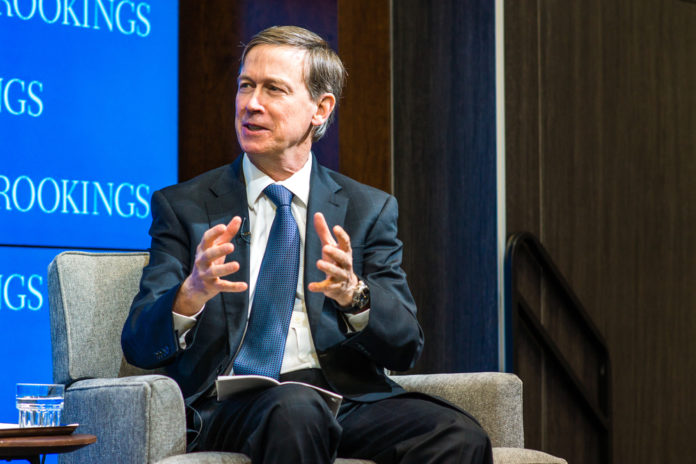Governor John Hickenlooper of Colorado wants California to avoid repeating the early missteps of Colorado’s legalized recreational cannabis program.
In 2012, Colorado and Washington made history by being the first states to legalize recreational cannabis. Many outcomes of the new programs have been positive, including new tax revenues that have been directed toward social services.
Naturally with such a monumental undertaking, some problems were to be expected. One major issue involved cannabis-infused edibles. In a tragic incident, a college student consumed a cannabis cookie that exceeded the recommended dosage by six times. He jumped off of a balcony to his death. As a result, new requirements for packaging and labeling have gone into effect in Colorado. A red exclamation point is highly visible on the new packages along with recommended dosing and serving sizes.
“We made an awful lot of mistakes as we were trying to wrestle with some of these issues,” Hickenlooper, who is hoping to help California avoid Colordado’s mistakes as recreational cannabis is introduced, told state legislators.
California authorities may be feeling pressure to roll out the new regulations as seamlessly as possible. “We are in a sprint between now and Jan. 1 to be able to implement the mountain of rules and regulations associated with Prop 64,” state Sen. Mike McGuire (D-Healdsburg) said during the committee hearing where Hickenlooper spoke.
Colorado’s governor also expressed concerns about impaired driving linked to cannabis use. There may not be a simple fix for that issue on the horizon. Unlike breathalyzers that measure alcohol impairment, so far a reliable equivalent for cannabis has yet to be created.
“There is no real quantifiable, definitive impairment level as there is with our alcohol,” Sen. Jerry Hill (D-San Mateo) said. “That’s been the criticism or the challenge that we’ve been faced with here in terms of defining what impairment would be.”
Hickenlooper urged California to maintain a good relationship with federal authorities. He felt that President Trump would not seek a massive crackdown on the cannabis industry but stressed that California needed to be cautious.
“We’re optimistic that he’s going to let the experiment continue,” Hickenlooper said. “But they’re going to closely watch it, I’m sure.”











